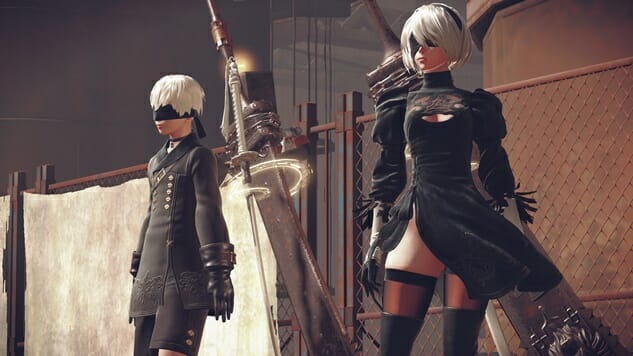On its surface, NieR: Automata is a game about robots and butts, rife with repetitive gameplay. But for those that fully experienced the multiple playthroughs and endings, culminating in one of the most impactful and inventive endings in recent videogame narratives, NieR: Automata is so much more.
The game has elevated its director, Yoko Taro, to auteur status within the videogame community, which made his discussion surrounding the game at GDC 2018 a must-attend event. During that talk, he revealed the inspiration for possibly the most inspiring moment of the title’s endgame: Coca-Cola.
Like so many other aspects of Yoko Taro’s personality and approach to game narrative and development, finding out that the global fizzy drink manufacturer was an inspiration is both odd and completely understandable. What specifically informed the moment was the installation of Coca-Cola vending machines in two Asian cities with extremely strained relations: Lahore, Pakistan and New Delhi, India. The machines incorporated live-streaming video to connect users in each city as they used the machines in order to inspire camaraderie and the rescinding of hostility as citizens of the two enemy cities simply enjoyed a drink together virtually.
Yoko Taro saw the campaign and felt so impacted by it that he “stole” the idea and utilized it within the game. “That project left an extremely strong impression on me,” said Taro. His implementation of this idea of virtual commiseration was showcased when the player’s screen is overrun with encouraging messages written by other players throughout the world at the end of the game. It’s an act that unites players from all over the world, no matter their own personal rivalries or cultural/ideological wars, within a virtual world to spread positivity and community with one another. It’s transcendent, beautiful and inherently Yoko Taro.
Taro originally only wanted messages to appear to players from countries with which their homeland was currently in conflict, but he ultimately fell back to the current idea after deciding he didn’t want to push his own ideals onto others. It’s pretty clear that his intention still comes across despite his own internal concession. What’s even better is that once players beat the game, they get to write their own message of encouragement to cast into the virtual sea of player inspiration.
Who would have thought that videogames and the makers of Mello Yello would be able to similarly inspire positivity on a global scale?
